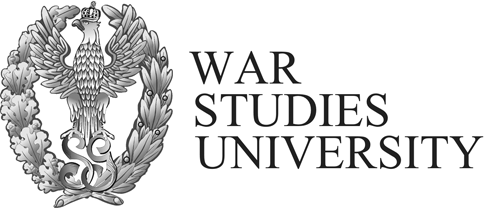The third decade of the 21st century has begun tumultuously with a global pandemic, the consequences of which are still difficult to estimate. Moreover, actors in the global, regional, and national security environment are experiencing an intensification of a variety of traditional and non-traditional threats. Many traditional security issues have undergone significant transformation in their structures and substances as a result of cultural reorientation, worldview changes, social upheavals and economic fluctuations, processes reinforced by the dynamics of adapting technology, in particular information and communication.
The sequence of events surrounding the spread of the pandemic has reminded the world of its fragility and shaken people’s beliefs about how effectively governments and institutions can manage emergencies (National Intelligence Council, 2021; Świeboda et al., 2021). This situation has resulted in a growing gap between those placing their trust in governments and groups that are deeply sceptical of public institutions, highlighting and reinforcing existing social divisions in most countries. A pandemic can completely reorient global politics and pose a long-term threat to state security and international governance. Looking at the security issue as a whole, it is important to identify and forecast threats and to recognise challenges with risk analysis of threats, both military and non-military, in view of anticipated changes in governance in the international and national security environment.
Among the major global challenges, with national and regional consequences, are climate changes, mass migration, rivalries between states, and the growing gap between people’s expectations and politicians’ agility. Disinformation also plays an important role, the scale of which is difficult to determine but which can be effective in sowing unrest in a rapidly changing international environment. For disinformation to be effective, it must overcome three powerful obstacles: first, the fundamental uncertainty that international anarchy generates about any information broadcast by adversaries; second, the biases of foreign policy elites and ordinary citizens; and third, the countermeasures available even under conditions of political polarisation (Lanoszka, 2019; Piazza, 2021; Świeboda, Zawadzki, and Wałęcki, 2021; Zawadzki et al., 2020).
Similarly, instability in the international arena, caused by numerous structural, ideological, cultural, and institutional variables, exacerbates the tense situation in many regions, sometimes leading to military confrontation and armed hostilities between state and non-state actors. Regional instabilities have created unrest and antagonism among many actors actively pursuing their interests at national, local, regional, and global levels. They have created tensions that have led to civil resistance, unrest, revolution, and civil war, and, in their most extreme forms, to crime, terrorism, and humanitarian disasters. The state of the economy can also be a threat to state and international security. Research done by the International Monetary Fund (IMF, 2016, p. 18, 29) shows that a decline of 1 percentage point of GDP below the average GDP growth of the past 4 years results in a 3.1% increase in support for political parties with populist views (Gębska, 2017). The COVID-19 pandemic, which has led to an economic slowdown, rising fuel prices since the late 2021, and geopolitical tensions, including Russia’s invasion of Ukraine in February 2022, have posed serious challenges for states and the future balance of power globally.
Each of these traditional and non-traditional challenges has a direct or indirect impact on international and national (state) security. Of particular importance is the importance of diplomacy, including defence diplomacy (Cottey and Forster, 2010; Drab, 2021), and building one’s own defence capabilities and military cooperation between neighbouring states and amongst allies in situations of potential and real threats (Bodnieks, 2019; Correia, 2019; Erforth, 2020; Noh, 2018). These problems have been addressed by papers in the special issue of “Challenges for the state and international security: The current state and prognosis for the future”. These papers are written from a global perspective focusing on Europe and Asia, with quantitative and qualitative analyses and country case studies. The studies contribute to deepening our understanding of threats to security in the post-pandemic world, strengthening regional cooperation, and reinforcing civil-military relations.




